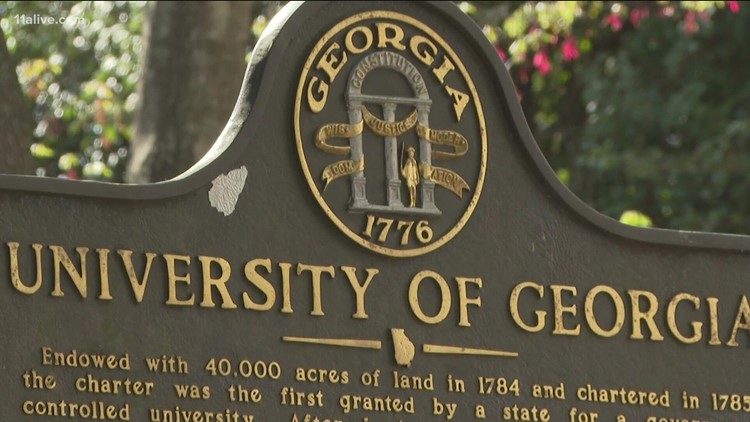ATHENS, Ga. — Georgia’s accent is fading y’all, and a new University of Georgia study said Generation X could be at fault for the rapid change in the southern drawl.
The collaborative study between UGA and Georgia Tech investigated the “notable change” between the baby boomer generation (born 1943 to 1964) and Generation X (born 1965 to 1982).
Researchers said that hours of recorded speech in the Peach State helped them draw this conclusion. They took note when they found that older speakers had a thicker drawl than the younger crowd. Researchers then started scratching their heads to find the guilty generation.
The study found that the accent of some Gen X speakers differed from the thicker accent of Baby Boomers. UGA and Georgia Tech were the first to identify the accent shift.
“We found that, here in Georgia, white English speakers’ accents have been shifting away from the traditional Southern pronunciation for the last few generations,” said Margaret Renwick, associate professor in UGA’s Franklin College of Arts and Sciences department of linguistics and lead on the study. “Today’s college students don’t sound like their parents, who didn’t sound like their own parents.”
Analysts said there is some historical significance behind the accent change. A UGA assistant professor, Jon Forrest, said the demographics of the South changed after World War II.
The accent change extends beyond Georgia and reaches to other regions in the country.
“We are seeing similar shifts across many regions, and we might find people in California, Atlanta, Boston and Detroit that have similar speech characteristics,” Forrest said.
Recordings of white individuals native to Georgia, born from the late 19th century to the early 2000s was the basis of the study.
Most notable changes include how some Georgians pronounce vowels. The research team named the words "price" and "face" as examples.
"Older Georgians pronounced 'prize' as 'prahz' and “face” as 'fuh-eece', but the youngest speakers use 'prah-eez' and 'fayce," according to the university.
“Changes to the diphthong in ‘prize’ are the oldest characteristic pronunciation in Southern speech, that can be traced back well over 100 years," Renwick said. "The Southern pronunciation of words like ‘face’ emerged in the early 20th century. These are distinctive features of the traditional Southern drawl.”
So how did researchers pick out the speech patterns? UGA officials said that a computer estimated how the mouth moves.
The research team will now look into the accents among generations in Black Georgians.
To learn more about the study, click here.



